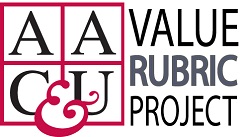March 13, 2014
Valid Assessment of Learning in Undergraduate Education rubric workshops Friday

Ashley Finley, Association of American Colleges and Universities, or AAC&U, senior director of assessment and research, will lead sessions throughout the day on Friday on the Valid Assessment of Learning in Undergraduate Education, or VALUE, Rubrics for both beginners and advanced users.
Cultural Competence with the Intercultural Knowledge and Global Learning VALUE Rubric workshop is from 8-9:30 a.m. in 106 Bluemont Hall. All are invited to this special session designed for College of Education faculty and staff.
Introduction to the VALUE rubrics workshop is from 9:30-10:20 a.m. and 1:30-2:20 p.m. in 401 Hale Library. Learn the basics of using the rubrics to assess student learning and improve learning both in the classroom and at the program level will be covered.
Using the Oral Communication, Written Communication and Critical Thinking VALUE Rubrics workshop is from 10:30-11:20 a.m. and 2:30-3:20 p.m. in 401 Hale Library. Participants will go in-depth to understand how to implement the oral communication, written communication and critical-thinking rubrics. This session is encouraged for participants in the rubric pilot project.
A brown bag session is from noon to 1 p.m. in 401 Hale Library. Bring your questions and your lunch to learn about the rubrics.
Workshops are free and open to all K-State faculty and staff. No registration is required. Find more information, including links to all 16 VALUE rubrics online. Workshops are sponsored by the Kansas State University Office of Assessment.
As part of the Valid Assessment of Learning in Undergraduate Education project, teams of faculty and other academic and student affairs professionals developed rubrics for 16 of the association's essential learning outcomes, creating this set of 16 rubrics for use in any institutional context. The association's rubrics emerged from analysis and synthesis of existing campus rubrics, organizational statements on outcomes, input from experts in the respective fields, and faculty feedback from campuses.
Each rubric contains the most common and broadly shared criteria or core characteristics considered critical for judging the quality of student work in that outcome area. Thus, the rubrics reflect faculty expectations for essential learning across the nation, regardless of institution type, size, location or mission.
